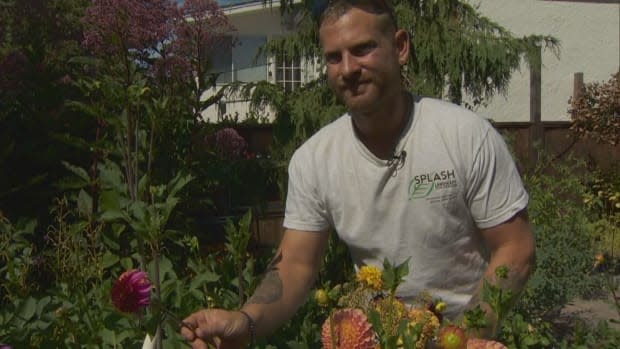Climate change is top federal election issue for B.C. voters, poll finds

In his 30 years of hotel ownership, Phil Elliott says he's never seen so many cancellations.
The Okanagan Falls resident, who owns and operates the Avalon Inn, says the Osoyoos hotel lost roughly $50,000 worth of business over the August long weekend — as B.C.'s southern Interior wrestled with wildfires and the resulting smoke.
"Every year there's been some sort of impact with fire, smoke, but I haven't seen anything this devastating," said Elliott, 66. "Fire season usually starts later in August and goes into September… This is stretching out into the really high part of the season."
But while he isn't sure how the rest of the summer will play out, Elliott — a former Conservative supporter — says policies around environment and climate change will determine which party he supports in the upcoming federal election.
And he's not alone.
Polling data from the Angus Reid Institute shows the environment and climate change are a key issue for British Columbian voters, with 45 per cent of those surveyed indicating it's a priority.
"I'm probably going to be looking at a party that best represents those values," said Elliott, "That will not take me back to the '50s and '60s fossil fuels mentality that I don't want to see."

Earlier this month the UN's Intergovernmental Panel on Climate Change issued a dire warning, saying the world is dangerously close to runaway warming, with humans "unequivocally" to blame. The report, delivered three months before a major UN climate conference, urged nations to end their use of coal and other carbon-based fossil fuels.
Changing political landscapes
His concerns are shared by Splash Landscaping owner Brandon Swartz, who says it's been tough to keep plants — and people — healthy amidst the hot temperatures.
"Being exposed to the conditions on the daily is quite strenuous," said Swartz, 33. "Guys get tired quick, things dry out."
Despite the strain on crews, however, the Victoria business owner says he plans to vote for whichever party has the most "balanced" approach, saying he's also concerned about housing and support for small business.

"I definitely believe that climate change should be a top priority. I think if [the parties] knock that down the list then it would definitely have an effect on my vote," he said.
Swartz declined to reveal which party he voted for in 2019. That year his riding went to the NDP — who bested the Green party by just 2,444 votes.
Liberals lead in voter intention: poll
But while a majority of those surveyed by the Angus Reid Institute felt NDP Leader Jagmeet Singh was "best suited" to deal with climate change, the non-profit organization also found a majority of voters intend to vote Liberal.
Of the 1,465 people surveyed, 35 per cent said they planned to vote for Prime Minister Justin Trudeau's Liberal Party, followed by Erin O'Toole and the Conservatives and then the NDP.
CBC's Poll Tracker, too, showed the Liberal's inching into majority territory ahead of Sunday's snap election call.
The Green Party, led by Annamie Paul, meanwhile, trailed the pack with Angus Reid reporting voter support at just three per cent.
"The Greens have been having some troubles lately. They are polling in the low single digits. So will that vote go somewhere else?" asked Shachi Kurl, president of the Angus Reid Institute.

"Forty per cent of Canadians either say they're not sure which leader is best on climate change or say none of them are."
As he reflects on the hot, dry summer and the economic uncertainty it's wrought, hotelier Elliott says he'd like to see Canada's major parties collaborate on the matter.
"This shouldn't be a political thing," he said. "It's just science ... they should all get together and address this climate change issue."
